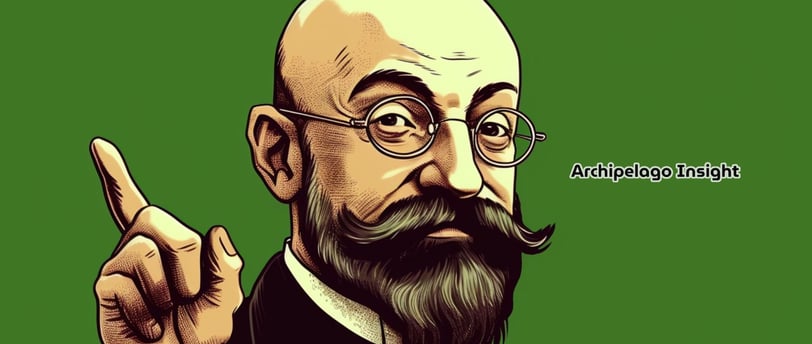The Grand Experiment of Esperanto: A Noble Dream or Fool's Errand?
The history and current state of Esperanto
EDUCATION
8/20/20232 min read


Esperanto is the most widely spoken constructed international auxiliary language. It was created in the late 19th century by L.L. Zamenhof, a Polish ophthalmologist, with the goal of fostering peace and international understanding through easy and equitable communication across borders and cultures. Zamenhof believed that a shared second language could help overcome misunderstandings and bring people together.
Zamenhof's idealism and vision were admirable and ahead of his time. However, the quest to establish Esperanto as a universal language has been a rocky one, filled with both triumphs and setbacks. On the one hand, Esperanto has survived for over 130 years and has between 100,000 to 2 million speakers worldwide. It has a rich culture and literature. On the other hand, it has failed to achieve Zamenhof's lofty goal of becoming the world's second language and uniting humanity. The vast majority of people remain indifferent or hostile to the notion of a constructed universal language.
While its proponents argue that Esperanto is easy to learn, fun to speak, and politically neutral, its detractors counter that it will never gain enough popularity to become truly useful. They argue that natural languages like English are far more practical as global lingua francas. There is also a tendency to dismiss constructed languages as eccentric pastimes for idealists, not serious pursuits.
And yet, the vision of a universal language continues to inspire people across the world. New generations of Esperantists work to promote the language through technology, education, and culture. They organize international events and use the language on social media. They believe that as globalization and international exchange grow, so too will the need for equitable communication.
Esperanto's grand experiment may have failed to achieve its loftiest ideals, but it lives on in the hopes and actions of its supporters. For those drawn to its vision of cross-cultural understanding, Esperanto remains a noble dream worth pursuing and a language worth learning and speaking, if only to spark connection and spread goodwill across the world's many divides. Overall, while Esperanto's destiny is still unwritten, its mission is as timely as ever in today's global age.
Esperanto in Indonesia
There is a long history about Esperanto in this archipelago. She was Rangkayo Khailan Syamsu (6 April 1905 – 23 September 1962) - a figure in the Indonesian women's rights and independence movement. She was also known as a journalist and writer and also a prominent figure in the Esperanto movement, serving as the President of the South Asian Esperanto Federation and the President of the Esperanto Association of Islam. Khailan Syamsu made important contributions to the Esperanto movement in Indonesia and South Asia, as well as in advocating for women's rights and Indonesian independence.
Khailan Syamsu founded the Indonesian Esperanto Association in 1952 in Jakarta. The association played an important role in promoting the Esperanto movement in Indonesia. Khailan Syamsu and her friends started Esperanto courses in various cities such as Jakarta, Bandung, Yogyakarta, Magelang, Lubuk Linggau, Semarang, Malang, Denpasar, Waingapu, and Makassar.
They also published numerous Esperanto books, dictionaries, magazines, and newspapers. However, the Esperanto movement declined after Khailan Syamsu's death and was further hindered by political conditions.
In 2013, with the help of the Melbourne Esperanto Association and the support of foreign Esperantists, Indonesia successfully held its first Esperanto Congress in Bogor. The main achievement of the congress was the re-establishment of the national association, the Indonesian Esperanto Association (IEA).
In the first three years of its establishment (2013-2016), IEA focused on information and education activities, and collaborated with Esperanto clubs and groups in other cities to develop the movement.
In 2015, IEA was officially recognized as the 12th national association by the Universal Esperanto Association (UEA).
***
Archipelago Indonesia
